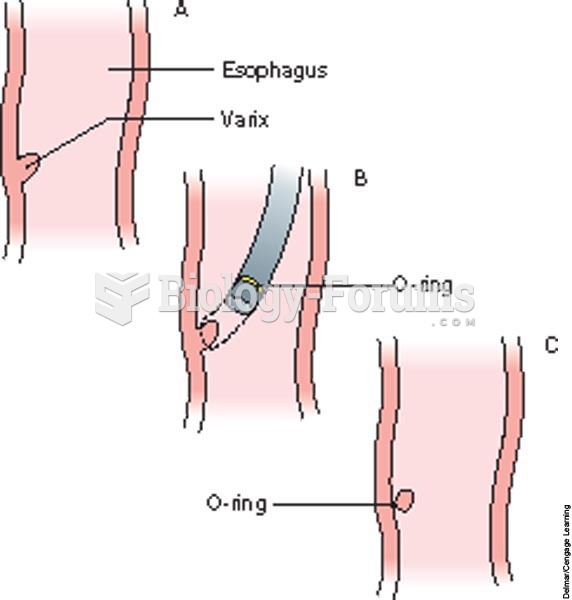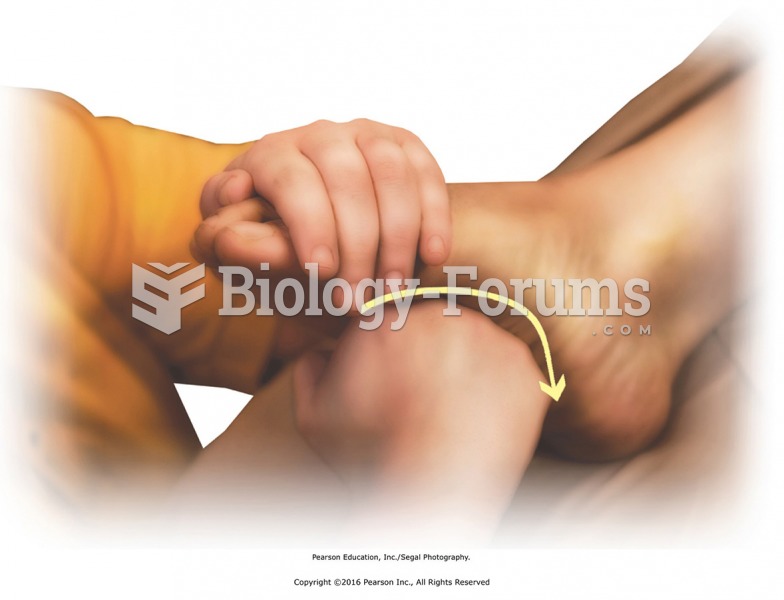|
|
|
People about to have surgery must tell their health care providers about all supplements they take.
Dogs have been used in studies to detect various cancers in human subjects. They have been trained to sniff breath samples from humans that were collected by having them breathe into special tubes. These people included 55 lung cancer patients, 31 breast cancer patients, and 83 cancer-free patients. The dogs detected 54 of the 55 lung cancer patients as having cancer, detected 28 of the 31 breast cancer patients, and gave only three false-positive results (detecting cancer in people who didn't have it).
There are 60,000 miles of blood vessels in every adult human.
According to the National Institute of Environmental Health Sciences, lung disease is the third leading killer in the United States, responsible for one in seven deaths. It is the leading cause of death among infants under the age of one year.
Alcohol acts as a diuretic. Eight ounces of water is needed to metabolize just 1 ounce of alcohol.
 Banding of an esophageal varix; A, varix; B, insertion of tube with O-ring; C, O-ring is placed arou
Banding of an esophageal varix; A, varix; B, insertion of tube with O-ring; C, O-ring is placed arou
 The tools necessary to adjust the valves on an engine with adjustable rocker arms include basic hand ...
The tools necessary to adjust the valves on an engine with adjustable rocker arms include basic hand ...
 Scoop from (A) shoulders to (B) heels. Hold feet in one hand; with other hand use the palm to apply ...
Scoop from (A) shoulders to (B) heels. Hold feet in one hand; with other hand use the palm to apply ...




